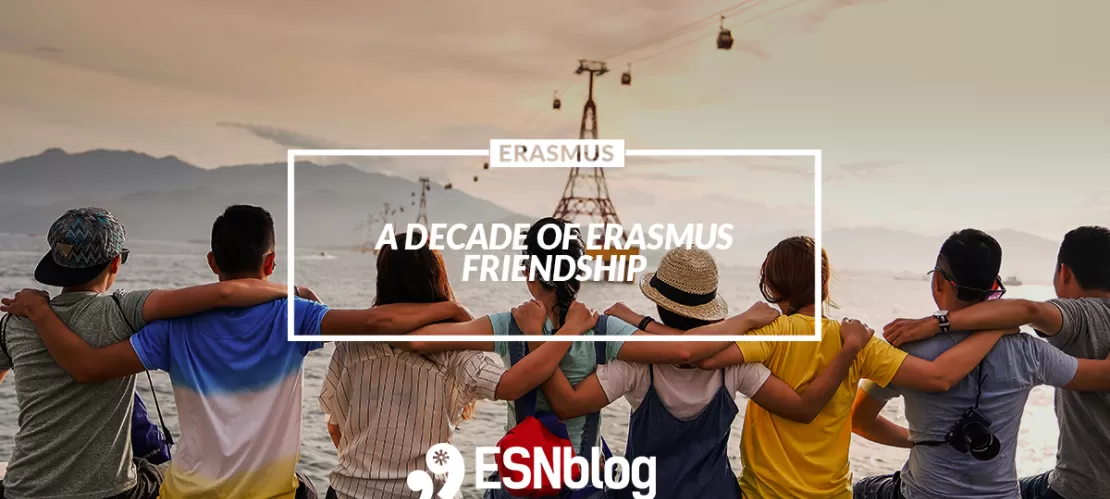
It was a Friday afternoon similar to many others. I was sitting in my apartment wrapped in blankets waiting for a Skype call. My phone’s screen lit up and as soon as the call started happy voices filled my room. Surrounding a smartphone somewhere in the UK, there were 9 people: Miriam, Lucie, Sandie, Jaques, Pavla, Nicole, Sara, Zdenek, and Marketa - a family that was created 10 years ago during their Erasmus exchange.
Seeing their wide smiles and sparkling eyes made me feel happier than words can describe. Knowing that this group of people has been in each other’s lives for ten years is reassuring, beautiful and true.
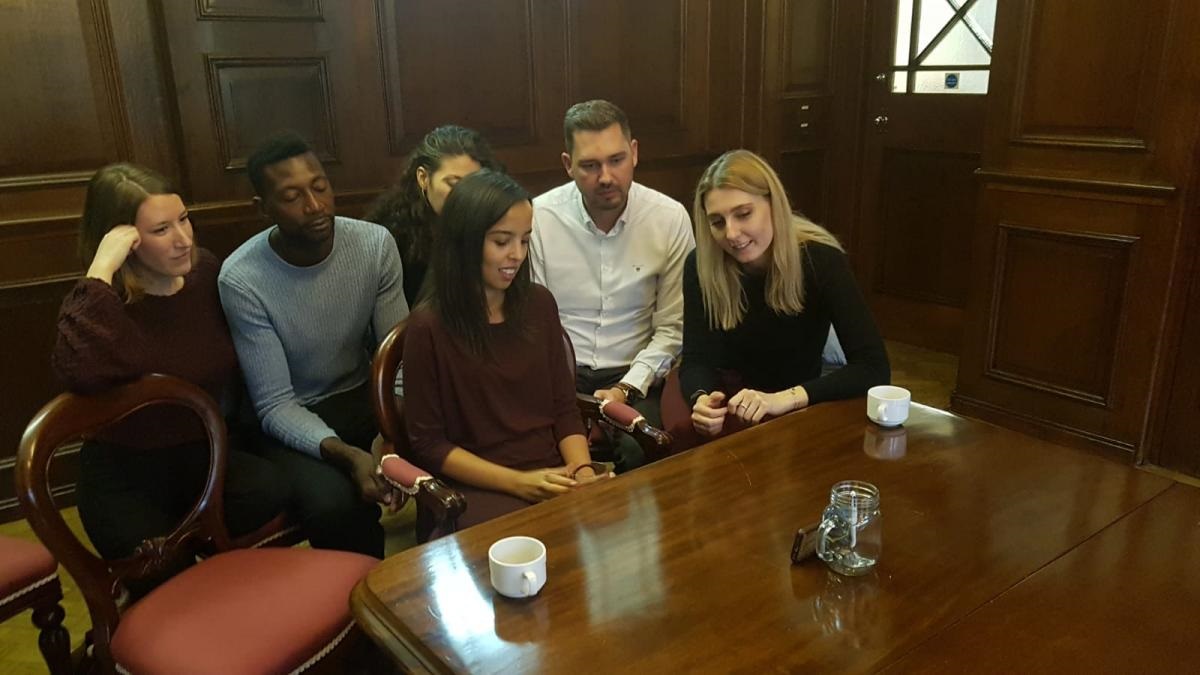
“How often do you get together?” I asked, amazed at how they achieved keeping their bond strong for so long. They looked at each other and agreed that they try to gather at least once a year. Of course, life gets in the way. When you’re an adult with responsibilities, a job, a fast-paced life, having friends who live so far away from you is not easy.
“We have to plan each meeting months in advance. We pick the place, the date, we make sure we can all make it there and still, some issues always occur,” they told me when I asked them to describe the process of organising reunions every year for so long.
Together, this group of 9 Erasmus friends has visited around 10 different countries, exploring different parts of Europe and of their friendship.
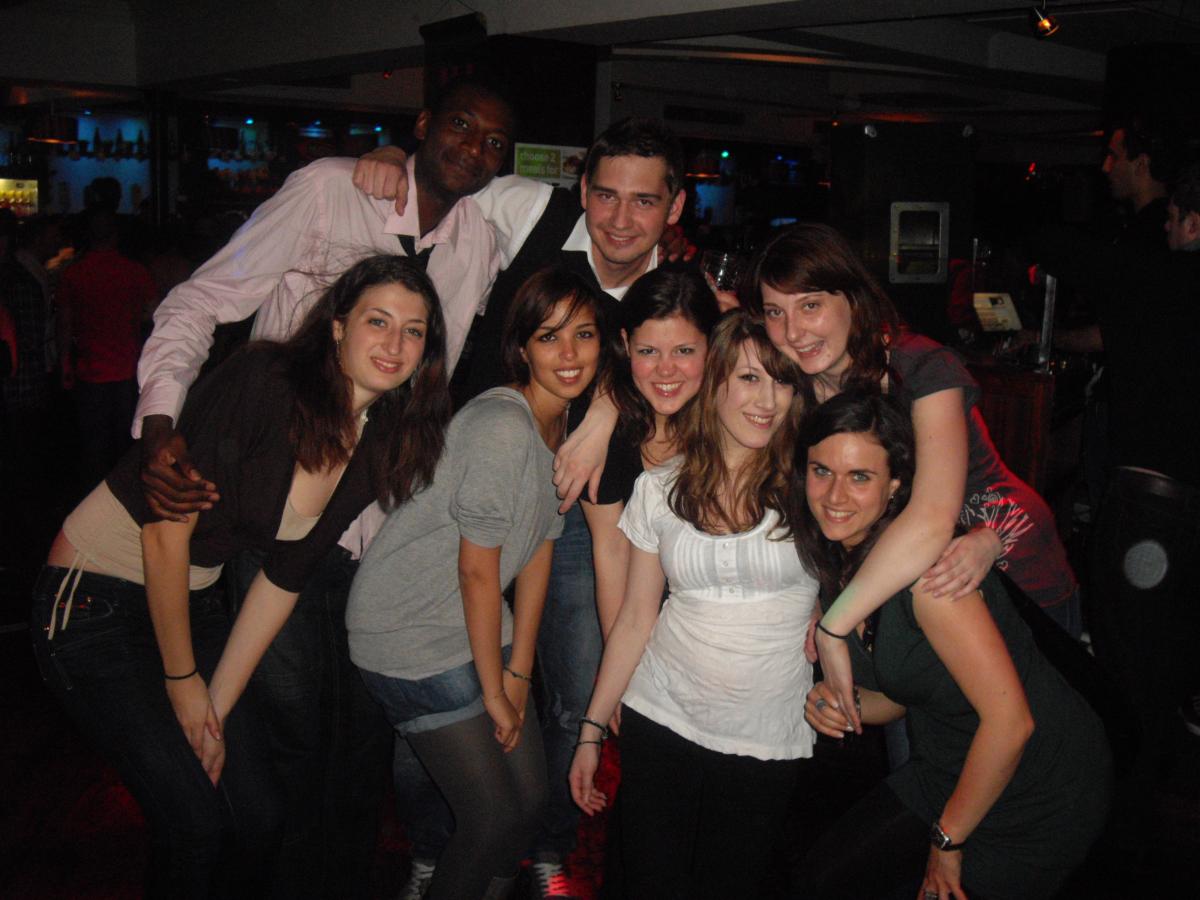
They met in a small community of Erasmus students at the University of Wolverhampton, where tapping on a stranger’s shoulder and saying “Hi, I’d like to be your friend” can get you a life-long friendship. They came from different European countries but shared similar fears and expectations. Being abroad for the first time, dealing with the bureaucracy and not being fluent in English had the group worried at first, and even though the first few days were indeed difficult, they all agree they did just fine and, in fact, the experience was even better than they had initially hoped for.
They learned a lot about each other’s cultures by discussing music, food, drinks, and habits, but they also learned a lot about their own cultures, which they now got to look at from a different point of view.
After a few months of living the Erasmus experience, their lives changed forever. Ten years later, they find that this short period of time they spent abroad still affects their life decisions.
“Having the word “Erasmus” on your CV is an advantage,” they told me, “It certainly opened doors and helped with our professional careers”.
But if they had to choose one thing that Erasmus affected the most in their lives, it would be their desire to travel.
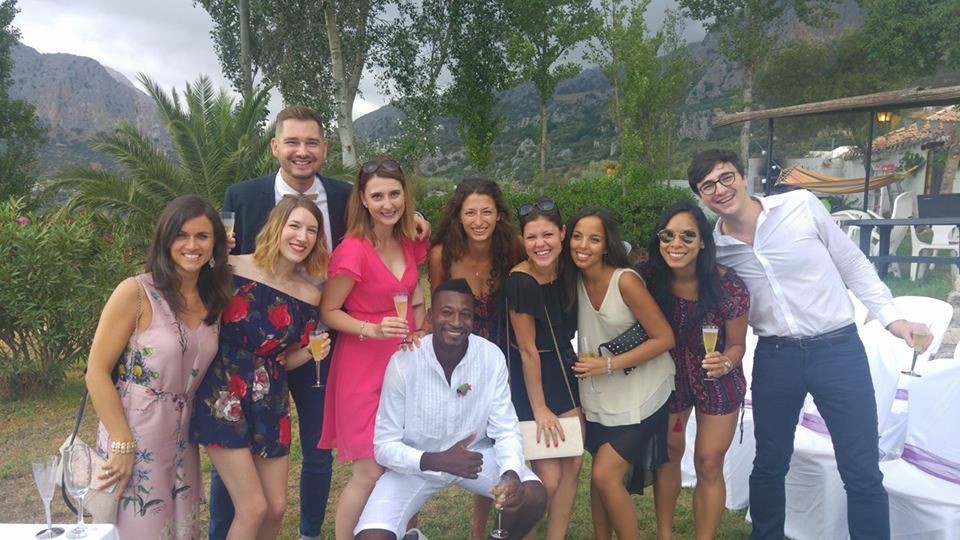
“We got the travel bug,” they said and laughed. And after organising reunions all around Europe, it was time for them to return to the place where it all started. Marking the 10-year anniversary of their friendship they hopped on trains, planes, and buses to gather, once again, at the University of Wolverhampton.
When I asked them how that felt, they said that things are different now. “The university has changed a lot, but our memories are still here.”
The group contacted their old Erasmus university and were received with enthusiasm, help, and a feature on their Twitter account! “If you plan a reunion, make sure to contact your receiving university. They might be able to help you and make your experience even more special.”
After chatting for a bit, our conversation shifted from the initial topic of their “reunion” to Europe and their feelings about what it offers to young Europeans.
“Erasmus is all about bringing people together. When you get to interact with so many people of your age who come from different countries, it makes you feel “European”. It’s real friendship, it’s about the individuals not their nationalities,” they told me. “We might speak different languages, but we share the same values.”
They mentioned how upset they were to hear about “Brexit”. The UK was the place where they found each other. “Any country can exist separately,” they said, “but it is always better together. We have so much in common!”
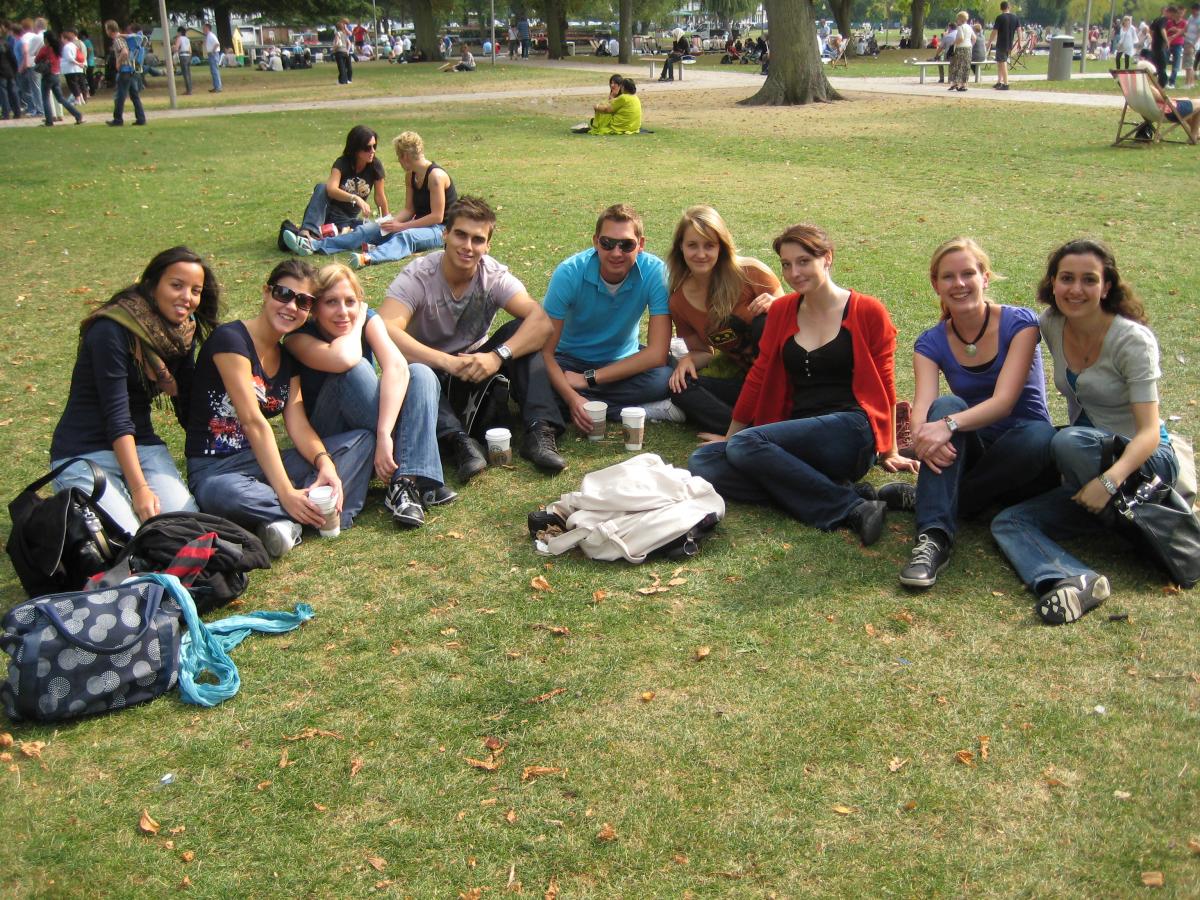
As our time is running low, I asked them how they feel about each other a decade after they first met. They said it’s love. “We’ve been through so much together. We met each other’s families and we’ve shared special moments.”
Of course, keeping up is often difficult. They told me their group used to be larger but some people eventually grew apart.
“You need to put effort into keeping your friendship alive,” they told me, “Social media is great, and it certainly helps a lot, but if you want to have a real relationship with someone, meeting face-to-face is essential.” They all nodded in agreement to that statement but were quick to point out that if you’re willing to work for it, long-distance friendship is possible!
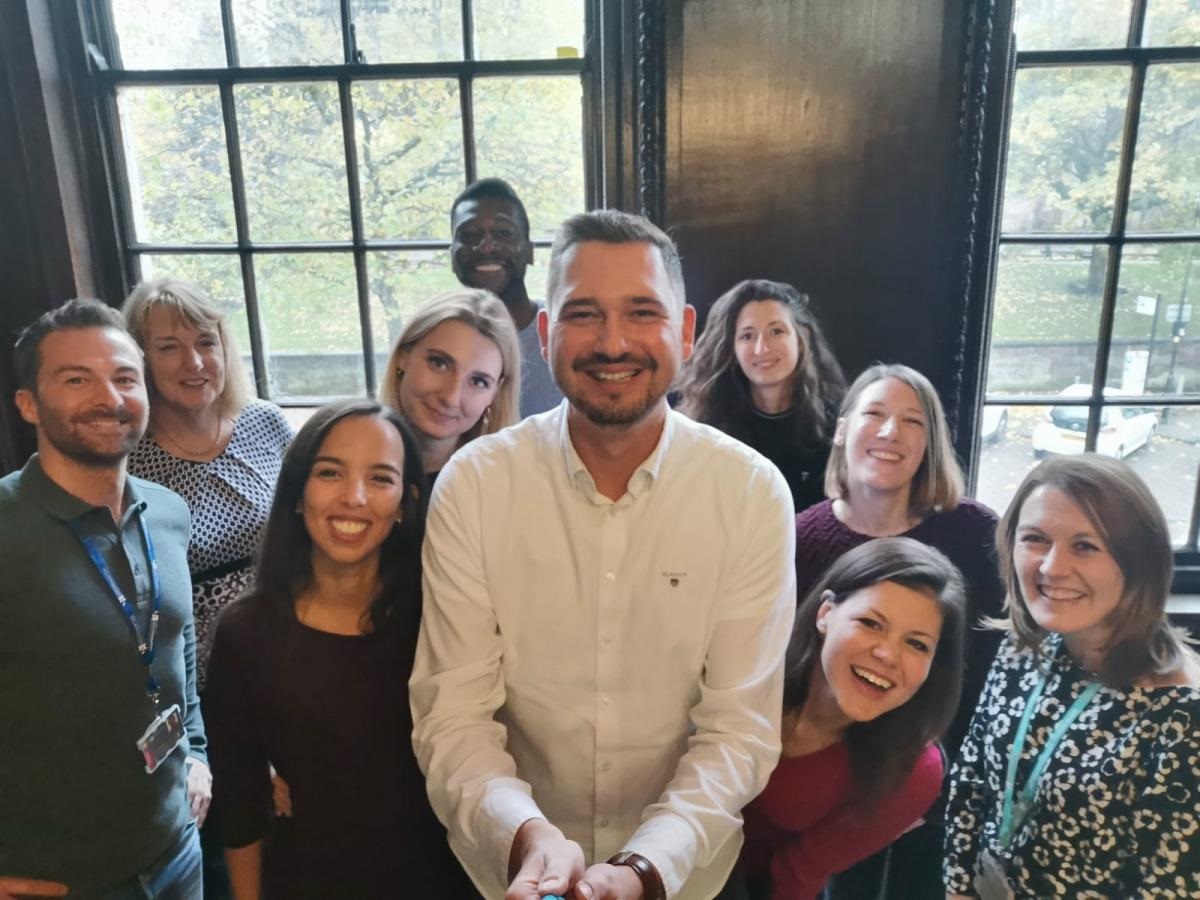
Before we waved goodbye, I asked them to send a message to current and future Erasmus students. Their response?
“Don’t think twice! Do it! Go outside, meet people, don’t stay in your room, don’t watch TV-shows all day!” they said, almost laughing. “On a more serious note, it’s not all roses and butterflies. There will be problems and loneliness but it’s worth it. So do it”.
Our time is up, they have to go on their next little adventure in the land where it all began. They waved at me, smiling, and I wished we have another interview when they meet again for their 20th anniversary. It was clear to me, through this short Skype call, that this is a friendship built to last and that’s a message worth sharing. From the living proof that Erasmus friendships can be strong and real to the Erasmus friends who met today and have no idea what to expect.
